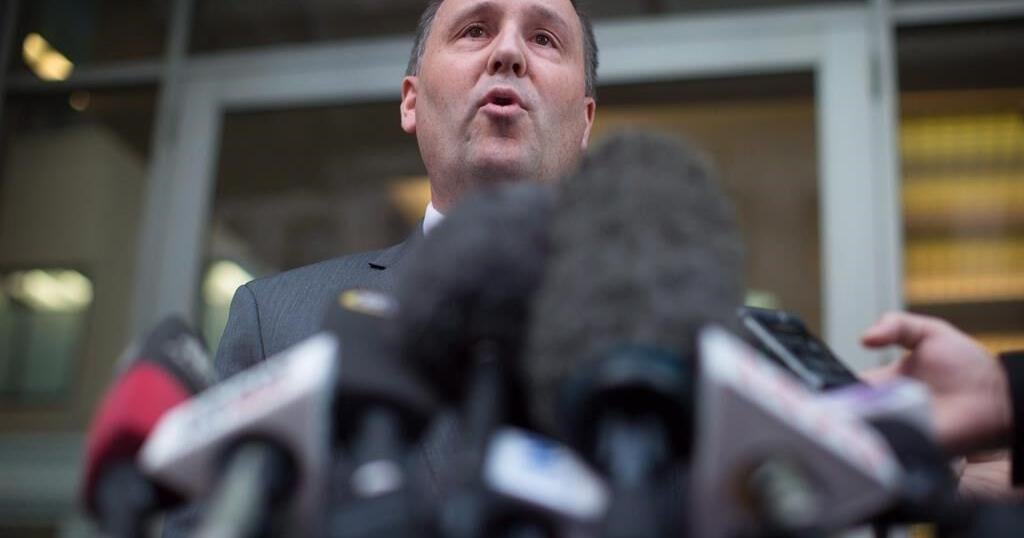A pair of BC United legislators have announced they are running as Independents in next month’s provincial election after the collapse of the Official Opposition’s campaign last week.
Both Mike Bernier and Tom Shypitka suggested in separate announcements Wednesday that Independent MLAs could influence the balance of power in the province after a tight election.
They were among BC United MLAs who entered uncertain waters last week when Leader Kevin Falcon shut down his party’s campaign and threw support behind the Conservatives led by John Rustad.
The parties have pooled candidates, and some former BC United contenders have joined the Conservatives while others have opted to withdraw from the fall election.
But Shypitka, the BC United MLA for Kootenay East, which forms part of the new Kootenay-Rockies riding, said in a Facebook live announcement Wednesday that the situation had created a “perfect storm” for Independent candidates.
“There’s never been a time in B.C. history when an Opposition (has) ever collapsed like it has here. So of course there’s going to be a lot of Independents that will be running,” he said.
“And the story right now is that in this election it will be so close that the independents will have the balance of power.”
Bernier, who represents the Peace River South riding, said Wednesday he did not want to “bend” his morals and values by running with the provincial Conservatives, describing some of the party’s candidates as holding views that are “anti-women’s rights, anti-climate change” and “anti-First Nations.”
Shypitka said Rustad had limited experience as a party leader and “we don’t really know who the B.C. Conservatives are.”
“An Independent can sit back and examine the situation. I don’t want to get involved with a bunch of folks … to find out I might be in the wrong spot,” he said.
Bernier also had doubts about the party’s candidates.
“I think that they put together a bunch of people that were right for the (B.C. Conservative) party that I would just really have a hard time working with,” Bernier said in an interview.
“And I believe, unless they can moderate some of their views, they’re going to really struggle in resonating with the majority of British Columbians.”
Bernier had said previously that he might run as a B.C. Conservative if asked, but said when announcing his decision to go Independent that he “never spoke to them at all.”
Bernier said many voters in his region vote to support a particular candidate rather than a political party, and that people pushed him to stay in the race.
Bernier was first elected in 2013 and won his seat in the 2020 provincial election with 51 per cent of the vote.
Shypitka was first elected in 2017 and won in 2020 with 57 per cent of the vote.
He said he told the Conservatives he was willing to run for them in his current riding, but that would have meant moving a candidate already in place and “that didn’t happen.”
Bernier predicted the election would be close, potentially giving Independent MLAs the balance of power in the legislature, citing the 2017 race when neither the BC Liberals nor the NDP secured a majority. The New Democrats secured power through a deal with the Greens.
“There’ll be a lot of different scenarios that could play out. But again, for myself, at the end of the day, it’s just really getting up and fighting for the people,” he said.
Bernier called Falcon’s actions last week “the dirty side of politics” and said BC United had been running centre-right candidates who “could have filled that void” between left and right-wing parties.
“We have a very diverse province, and I know people shouldn’t feel like they have to be told who to vote for, because I don’t want to see that polarizing kind of politics in British Columbia that sometimes we see down south,” he said.
A joint list of 140 previously endorsed candidates from both parties is being whittled down to fit the 93 ridings up for grabs, and three United MLAs — Ian Paton, Peter Milobar and Trevor Halford — on Tuesday announced they were running as Conservatives.
The shakeup has also meant the shuffling and, in some cases, the dropping of former B.C. Conservative candidates in favour of those from BC United.
They include Dupinder Kaur Saran who has said she is also planning to run as an Independent in Surrey-Panorama after losing party endorsement.
Kevin Acton, the mayor of Lumby and the former BC United candidate in the Vernon-Lumby riding, also announced he would be running as an Independent after losing his endorsement in the shuffle.
“While the party model of government has certain benefits, it also has a number of obvious flaws — including the ability of a party leader to remove previously vetted and duly elected candidates from participation as that party’s candidate, without the benefit of consultation or agreement from local constituents or the declared candidate,” Acton said in a statement posted online.
The Conservative slot on the ballot in Vernon-Lumby is now slated to be filled by former Kamloops-Centre candidate Dennis Giesbrecht, who was moved from the Kamloops spot to make room for Milobar.
Elections BC director of communications Andrew Watson said in an email that while a political party can withdraw its endorsement of a candidate, only the person who is running can withdraw their nomination.
That means it is up to the person who is nominated to withdraw, run as an Independent, or run as an unaffiliated candidate, in which case only their name would appear on the ballot, without the “Independent” label.
Candidate nominations close in B.C. at 1 p.m. on Sept. 28.
This report by The Canadian Press was first published Sept. 4, 2024.
